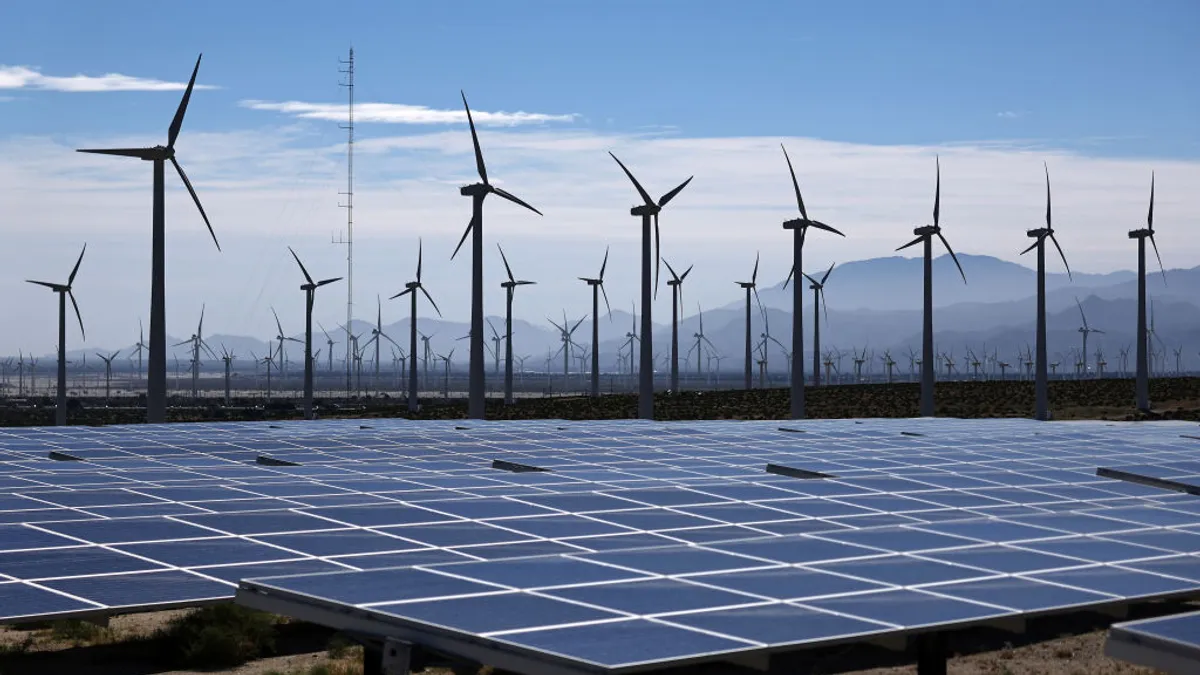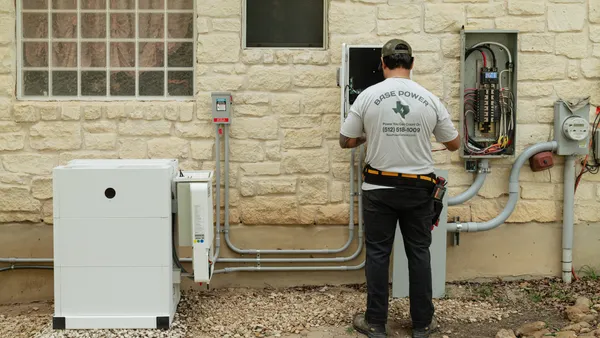Dive Brief:
- A bipartisan group of senators last week introduced legislation to strengthen national model building codes to make new homes and commercial buildings more energy efficient.
- Efficiency advocates say the bill could strengthen the U.S. economy while also reducing greenhouse gas emissions. Building codes are a "critical" energy saving opportunity, according to the Alliance to Save Energy.
- The National Association of Home Builders (NAHB), however, opposes the legislation's proposed model building code changes as "overly costly and aggressive energy efficiency requirements," though the group said it supports efficiency.
Dive Insight:
The legislation introduced last week, the Energy Savings and Industrial Competitiveness Act, is sponsored by Sens. Jeanne Shaheen, D-N.H., and Rob Portman, R-Ohio, along with several other lawmakers. Shaheen and Portman have been introducing efficiency bills for years, with no success so far.
Five years ago, their bill was expected to pass and then fell victim to D.C. partisanship.
"Over the last couple years the Senate has made incremental progress on energy efficiency issues, and I hope we can continue to build on those efforts," Shaheen said in a statement. "Congress should seize this opportunity."
In addition to strengthening building codes, the legislation would:
- Direct the U.S. Department of Energy to work with private sector partners to "encourage research, development and commercialization" of energy efficient technology and processes for industrial applications;
- Require the federal government to adopt energy saving techniques for computers, saving energy and taxpayer dollars.
- Allow federal agencies to use existing funds to "update plans for new federal buildings, using the most current building efficiency standards."
- Create a Commercial Building Energy Efficiency Financing Initiative to spark private sector investment in building efficiency upgrades and renovations.
The latest legislation has been "revamped" to include "some of the best tools available to use energy more efficiently," ASE President Jason Hartke said in a statement. "It's a better-than-ever plan to accelerate energy efficiency, and it's time to get it across the finish line."
The measure also has support from the American Council for an Energy-Efficient Economy, the National Association of Manufacturers, Leading Builders of America, the Global Energy Institute at the U.S. Chamber of Commerce, North American Insulation Manufacturers Association, the National Association of State Energy Officials (NASEO) and others.
But the National Association of Home Builders cautioned against the legislation's passage, saying it "takes the wrong approach."
"The legislation would harm housing affordability by imposing overly costly and aggressive energy efficiency requirements in model building energy codes," NAHB Chairman Greg Ugalde said in a statement. "Moreover, the bill would discourage states from adopting codes that meet their specific needs."
NAHB said it would instead support bipartisan legislation introduced in the House by Reps. Kurt Schrader, D-Ore., and Bill Flores, R-Texas. The group said the Energy Savings and Building Efficiency Act "offers a more cost-effective way to encourage energy efficiency" by requiring DOE-supported codes to have a payback period of 10 years or less.













